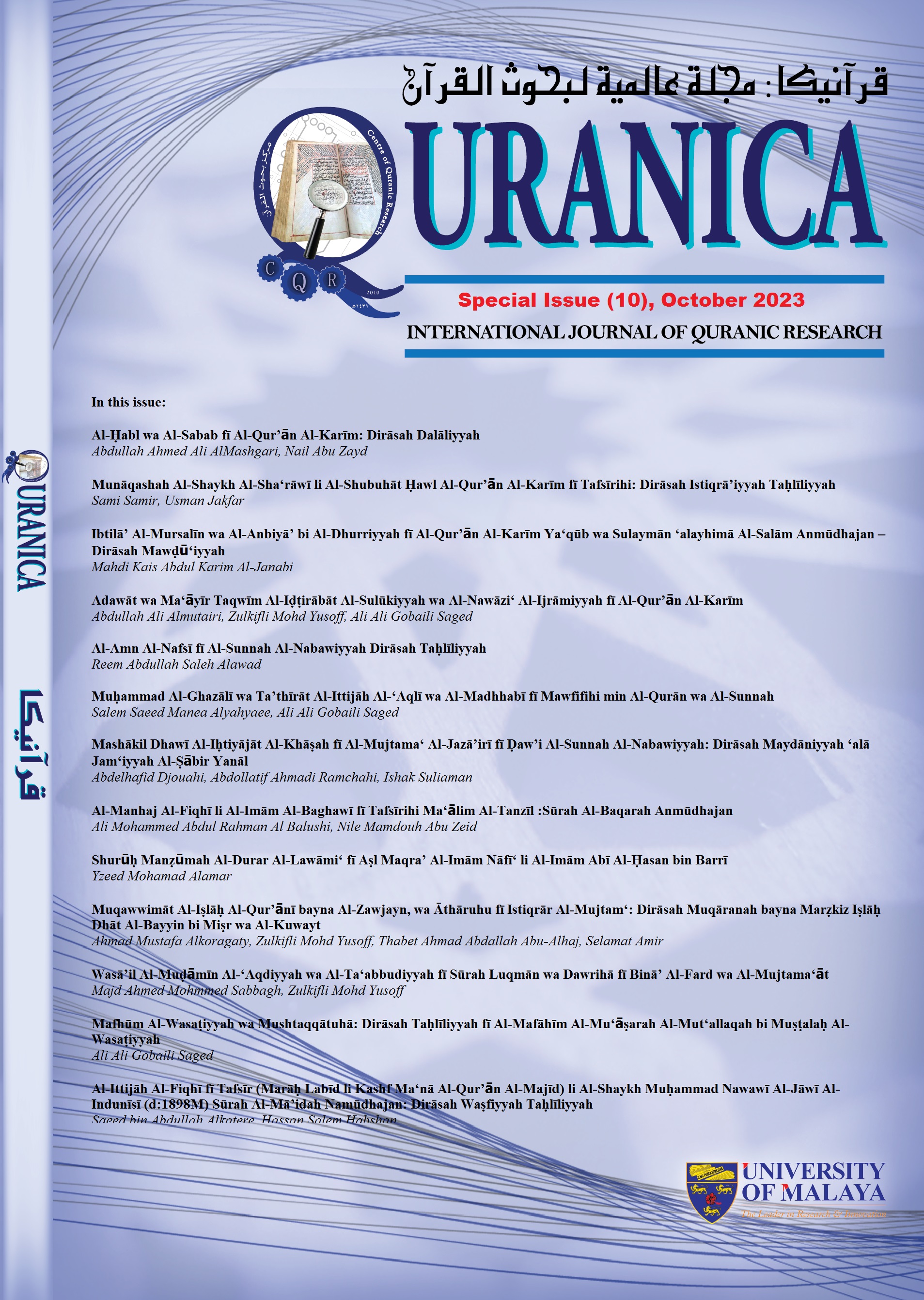Mashākil Dhawī Al-Iḥtiyājāt Al-Khāṣah fī Al-Mujtama‘ Al-Jazā’irī fī Ḍaw’i Al-Sunnah Al-Nabawiyyah: Dirāsah Maydāniyyah ‘alā Jam‘iyyah Al-Ṣābir Yanāl
Main Article Content
Abstract
This study entitled: "Challenges of People with Special Needs in Algerian Society in the Light of Quran and Prophetic Sunnah: A Field Study on the Saber Yanal Association". This study explores various aspects related to people with special needs in Algerian society, focusing on the Saber Yanal Association in Ouargla. The research encompasses definitions of individuals with special needs from the linguistic aspect and from the Quran and Sunnah. It, also, investigates their rights according to Quran and Sunnah, and the impact of this on Algerian society. The study employs three research methods: an inductive approach to extract the verses and Prophetic Hadiths regarding people with special needs, a comparative analytical method to discuss and analyses the obtained information, and applies an approach based on a field study conducted on the Saber Yanal Association. This research conducts a survey with 150 members who have special needs. This study concludes that Quran and Sunnah emphasizes the importance of people with special needs, recognizing them as part and parcel of the Islamic community and granting them complete and unreserved rights. In the meantime, it focuses on assigning duties according to their capabilities to break barriers of discrimination. The field study reveals that 55% of the Algerian society lacks a proper understanding of the principles of Quran and Sunnah in dealing with people with special needs, which is more inclined towards adopting a sympathetic, humane attitude, as named by the international community. This lack of understanding and practical application of the Quran and Sunnah negatively affected the Algerian society, as indicated by the survey results with a 49% response rate.
Downloads
Article Details
Disclaimer
QURANICA makes every effort to ensure the accuracy of all its contents. However, opinions, discussions, views and recommendations are expressed in this journal do not necessarily reflect the official policy of QURANICA or views of its editors or publishers. Therefore, QURANICA and its publishers will not be liable for any controversy may be arisen. The journal reserves the right, at its sole discretion, to change its terms and conditions of publications.
Copyright
It is a condition of publication that manuscript submitted to the journal have not been published, accepted for publication, nor simultaneously submitted for publication elsewhere. By submitting a manuscript, the author(s) agrees that copyright for the article is transferred to the publisher, if and when the manuscript is accepted for publication.
